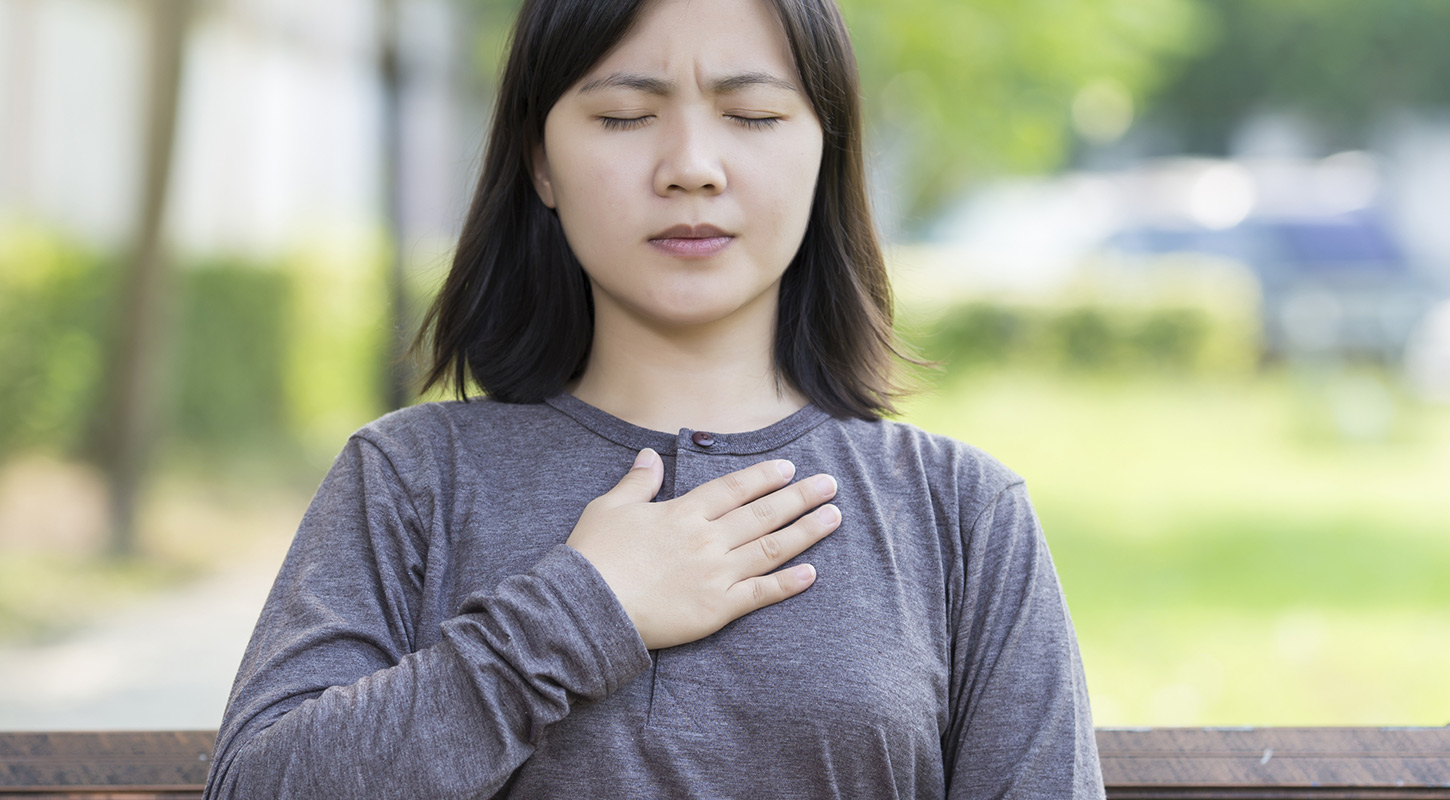Baptist Cardiologist Shares What All Women Should Know About Heart Disease

Heart disease is often thought of as a disease that impacts men, but the truth is that it is the leading cause of death for women in the United States. Close to one in every four female deaths is caused by heart disease. This year, in honor of American Heart Month, take the time to educate yourself on what symptoms to look for and what steps women can take to lower their risk of heart disease.
While the differences in heart attack symptoms between men and women are often highlighted, it’s crucial to know how to identify signs before a heart attack occurs. “What’s really important to emphasize is the difference between a sudden heart attack and much earlier symptoms of blockages that could eventually lead to a heart attack,” says Dr. Stacy Smith, MD, FACC. “You don’t want to catch these things when you’re having a heart attack. You want to find out long before that happens.”
There are several common symptoms that women should be looking out for, including:
- Shortness of breath with exertion
- Unusual fatigue occurring with activity
- Discomfort during physical activity
“The key is that these symptoms arise when trying to do physical activity, like cleaning the house or making the bed,” says Dr. Smith. “You might think to yourself, ‘I can’t walk as far as I used to walk.’ You may notice discomfort in your upper abdomen, upper shoulder pain, or jaw discomfort. All of this tends to have onset with activity and go away when you stop doing whatever it was you were doing.”
Be Proactive When It Comes to Your Heart Health
Even if you aren’t noticing these warning signs, taking preventive measures is the best way to set yourself up for success. All women should have blood pressure, diabetes, and cholesterol issues treated, and stop smoking as soon as possible.
If you begin noticing discomfort or shortness of breath, write down those symptoms and be as descriptive as possible. “Make note of when you have them, what makes them better, what makes them worse,” shares Dr. Smith. “Women can help their doctors so much by taking the time to really sit down and analyze themselves. It’s one of the most important things they can do.”
One of the biggest misconceptions that women tend to have about diagnosing heart disease is that stress tests are ineffective. One reason for this is because of the way plaque tends to be distributed in a woman’s artery compared to a man’s. With women, plaque often lays neatly along the side of the artery – men tend to have plaque buildup in one spot, which causes the blockage. Because of this, women can experience a decreased blood flow to their heart without actually showing a blockage on a stress test.
“If a woman is truly having symptoms and has a normal stress test, which is a common problem we face, it is time to sit down and think about how to better understand what’s going on in their heart,” says Dr. Smith. “Their cardiologist can help them think about the options for evaluation. All of the risk factors need to be aggressively treated. This is the biggest area where we have difficulty sorting things out because it’s well known that 50% of plain stress tests can be a false negative.”
Despite this, it doesn’t mean that a heart cath is the only other choice.
“It would not be good for anyone to have the first test be a heart cath just because they don’t believe in a stress test. There are many ways we can evaluate for coronary artery disease that can ultimately lead to a good answer. Yes, it may eventually lead to a heart cath, but it shouldn’t be the first test to do. The correct kinds of stress tests are actually very useful, but we have to understand them in the context of the woman’s symptoms and complaints.”
Baptist Memorial Health Care offers the Mid-South community a variety of resources to help prevent and diagnose heart disease, including weight loss programs and a vascular screening program that can help identify issues early on.
Remember – if you’re experiencing sudden symptoms while you’re at rest, like a sensation of blood flow to one of your arteries; discomfort in the neck, jaw, chest, shoulders, and upper abdomen; unexplained sweating; nausea; or shortness of breath, it’s important to go to the emergency room immediately.
“If you have other symptoms that come on with activity and go away with rest, it’s time to go to your doctor – don’t brush it off.”
Visit our Heart and Vascular Care page for more information about heart services at Baptist, or find a physician by visiting our Find a Doctor page.
